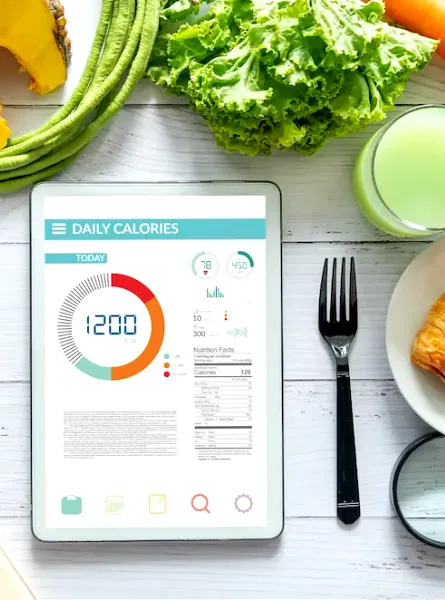
1. Lunch is the most important meal of the day
How many times have I heard people say to me, "I'm forcing myself to have breakfast". Often, we invoke that if we don't eat breakfast, our metabolism doesn't get active. First, we should never "force" ourselves to eat. Eating is a need felt when the body sends us the signal that it needs energy, i.e. hunger (rumbling, feeling of depression, etc.). So, if you are not hungry as soon as you get up, wait until you are hungry before eating. Also, ask yourself about your eating habits in the evening: if you are not hungry in the morning, it may be because you tend to eat beyond your appetite in the evening.
"But eating activates the metabolism! "Wrong. The metabolism is always active, 24 hours a day, 7 days a week, even when you sleep. Eating does not accelerate your metabolism. Which brings me to the next myth...
2. It is necessary to eat several small meals a day since it increases the metabolism
Digestion effectively increases energy expenditure - your body must expend energy to be able to assimilate and use it. So in theory, eating smaller portions more often should increase your energy expenditure. In practice, it is a completely different story. By eating the same amount of energy (calories), the number of meals/snacks makes no difference to fat loss or metabolism. Some people do not feel satisfied with small portions, which could lead to weight gain if snacks are added. For others, snacks are essential to control hunger between meals. So there is no ideal meal schedule, consider your energy level during the day, your hunger and your life schedule to guide you.
3. They must not eat after 8pm in the evening
The myth is that if you eat before going to bed, when energy expenditure is low, you store calories, and that makes you gain weight. So I repeat again: the metabolism is still active. Over the course of an 8-hour night, your body will use an average of 400 to 600 calories (depending on your metabolism based on your age, weight, height, sex, muscle mass and more). This expense is similar to the one that occurs during the 8 hours at work that most of us spend in front of a screen - yet no one tells us that dinner makes you fat!
Where the myth contains some truth is that for some people, eating late at night is a habit and not a response to a hunger signal. Too often, we eat in the absence of hunger signals - whether out of habit, to comfort ourselves, to pass the time, to accompany others - and this habit, no matter what time it occurs, pushes us to gain weight. If you tend to eat late at night, start by asking yourself if you are really hungry or not, and if the answer is no, ask yourself why you want to eat.
4. Peanut butter is a good source of protein
Let's take a look at what's in peanut butter. Each tablespoon contains about 3g of protein and about 90 calories. Do you know what else contains 3g of protein and about 90 calories? A slice of whole wheat bread, a medium sized potato, or ½ cup of cooked starch (rice, pasta, couscous, millet, millet, barley, oats), or 1 cup of vegetables - all foods that are not considered good sources of protein... yet they are just like our favourite peanut butter!
5. We must eat protein immediately after training
Exercising "damages" your muscles, so your body is looking to repair them, a process that makes them stronger and more resilient. Your body therefore uses amino acids (products of the proteins we eat) for this repair operation, but the existence of a "time window" to consume proteins remains a subject of debate.
Eating 15 to 30g of protein within two hours after training is ideal, but it is not necessary. Your efforts in the gym will not be ruined if you forget your post-workout snack! What is more important is your daily intake of protein.





